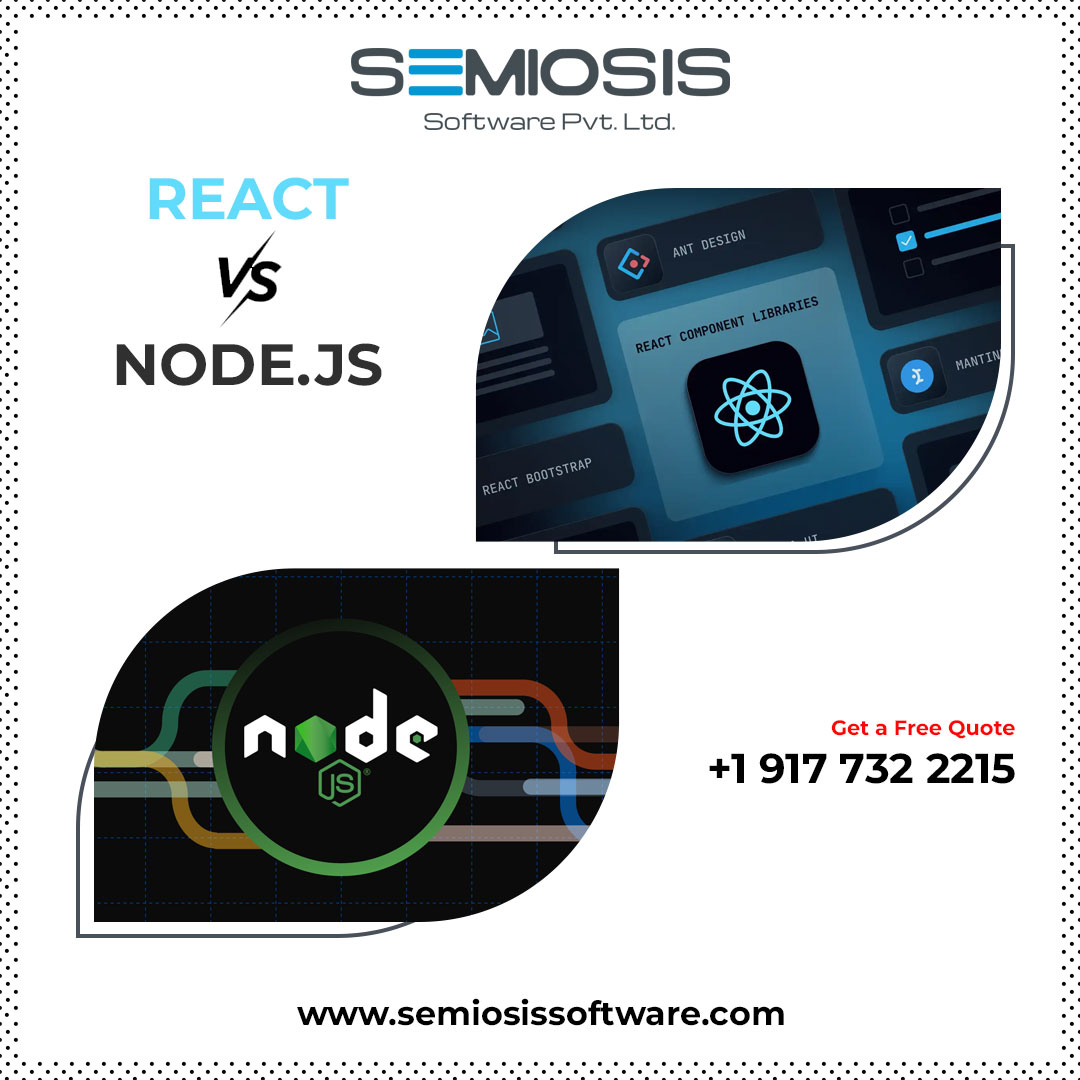React vs. Node.js: Choosing the Right Tool for Web Development
In the ever-evolving landscape of web development, developers are constantly faced with the challenge of selecting the right tools for their projects. Among the myriad of options available, React vs Node JS stand out as two popular choices, each offering distinct advantages and use cases. In this blog post, we’ll explore the differences between React vs Node JS and help you determine which one is better suited for your web development needs.
React.js: Building User Interfaces with Ease – (React vs Node JS)
React, developed by Facebook, is a JavaScript library for building user interfaces. It’s known for its component-based architecture, which allows developers to create reusable UI components and build complex user interfaces with ease. React utilizes a virtual DOM (Document Object Model) to efficiently update and render UI components, resulting in faster performance and better user experience.
Advantages of React.js:
- Component-Based Architecture: React’s component-based approach promotes code reusability and modularity, making it easier to maintain and scale large applications.
- Declarative Syntax: React uses a declarative syntax, allowing developers to describe how the UI should look based on its current state. This simplifies the process of building and updating UI components.
- Virtual DOM: React’s virtual DOM efficiently updates and renders UI components, resulting in improved performance and faster page load times.
- Large Ecosystem: React has a vibrant ecosystem with a vast array of libraries, tools, and community support, making it easier for developers to find solutions and resources for their projects.
Node.js: Powering Backend Services with JavaScript (React vs Node JS)
Node.js, on the other hand, is a runtime environment for executing JavaScript code server-side. It allows developers to build scalable and high-performance backend services using JavaScript, the same language used for frontend development with React. Node.js is built on Chrome’s V8 JavaScript engine and utilizes an event-driven, non-blocking I/O model, making it well-suited for building real-time applications and APIs.
Advantages of Node.js:
- JavaScript Everywhere: With Node.js, developers can use JavaScript for both frontend and backend development, enabling full-stack development with a unified language and ecosystem.
- Scalability: Node.js is highly scalable and can handle a large number of concurrent connections efficiently, making it ideal for building real-time applications, microservices, and APIs.
- Non-Blocking I/O: Node.js utilizes a non-blocking, event-driven architecture, allowing it to handle multiple requests concurrently without blocking the execution of other code, resulting in better performance and responsiveness.
- Rich Ecosystem: Node.js has a rich ecosystem of modules and packages available via npm (Node Package Manager), allowing developers to easily integrate third-party libraries and tools into their applications.
Choosing the Right Tool for the Job – React vs Node JS
When it comes to choosing between React vs Node.js for web development, there is no one-size-fits-all answer. The decision largely depends on the specific requirements of your project and your team’s expertise and preferences.
- Use React.js if:
- You’re building a user interface-intensive web application.
- You prefer a component-based architecture for building UI components.
- You want to leverage React’s virtual DOM for efficient rendering and performance optimization.
- You need a large ecosystem of libraries and tools for frontend development.
- Use Node.js if:
- You’re building a server-side application, API, or real-time service.
- You prefer using JavaScript for both frontend and backend development.
- You need scalability and high performance for handling concurrent connections and real-time communication.
- You want to take advantage of Node.js’ non-blocking, event-driven architecture for building responsive applications.
In many cases, developers use both React vs Node.js together to build full-stack web applications, leveraging the strengths of each technology for frontend and backend development, respectively. Ultimately, the key is to understand the strengths and use cases of each tool and choose the one that best aligns with your project goals and requirements. Whether you opt for React, Node.js, or a combination of both, you’re sure to find powerful tools that enable you to build robust and scalable web applications.






